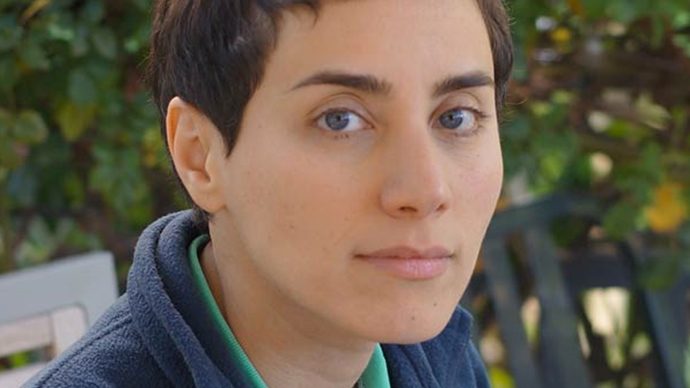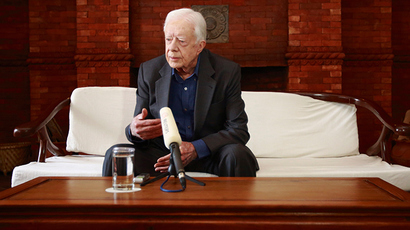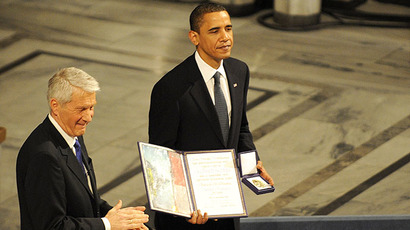No longer a man's world: Iranian woman becomes 1st female winner of ‘math Nobel’

Iranian scientist Maryam Mirzakhani has become the first-ever woman to receive the prestigious Fields Medal, often described as the "Nobel Prize in Mathematics."
Mirzakhani, 37, a professor at Stanford University in California,
is among the four 2014 awardees of the world’s top math prize.
She is the first female winner of the International Medal for
Outstanding Discoveries in Mathematics, also known as the Fields
Medal, which has been awarded every four years since 1936.
Mirzakhani received her medal at the International Congress of
Mathematicians in Seoul, South Korea, from the country’s
first-ever female president, Park Geun-hye.
"This is a great honor,” Mirzakhani said, according to
Stanford University’s website. “I will be happy if it
encourages young female scientists and mathematicians. I am sure
there will be many more women winning this kind of award in the
coming years."
Mirzakhani was born and grew up in Tehran, Iran. As a child she
was more fascinated by the world of literature than by numbers
and geometry, dreaming of becoming a writer. In her later years
at school, however, she discovered a particular pleasure and
exceptional skill in solving math problems.
"It is fun – it's like solving a puzzle or connecting the
dots in a detective case," she said. "I felt that this
was something I could do, and I wanted to pursue this path."
The Fields Medal award winners are announced. Artur Avila Manjul Bhargava Martin Hairer Maryam Mirzakhani #ICM2014pic.twitter.com/kVNtiXYj7b
— SEOUL ICM 2014 (@ICM2014) August 13, 2014
While still a teenager, she won gold medals at both the 1994 and
1995 International Math Olympiads.
Mirzakhani got her bachelor's degree from Sharif University of
Technology in 1999. After that she began her doctorate work at
Harvard University under the guidance of another Fields medalist,
Curt McMullen.
In 2008, she became a professor of mathematics at Stanford, where
she lives with her husband and three-year-old daughter.
The Fields Medal Mirzakhani received recognizes “her
outstanding contributions to the dynamics and geometry of Riemann
surfaces and their moduli spaces,” the International
Mathematical Union said in a statement.
Markhazani’s work is described as pure mathematics, investigating
entirely abstract concepts. Despite being mostly theoretical, it
can still find application in physics and quantum field theory.
Congratulations to Prof. Maryam Mirzakhani, first female recipient of the #FieldsMedal: http://t.co/OAT05AGLS1pic.twitter.com/uDfJqdCnuT
— Stanford University (@Stanford) August 12, 2014
While grasping what Mirzakhani's work is all about could be hard
for someone outside the scientific community, the researcher who
once considered a writer’s career for herself seems to be never
short of picturesque comparisons to what she’s doing. Developing
new proofs to mathematical theories is a most exciting adventure,
according to her.
"I don't have any particular recipe," Mirzakhani says.
"It is the reason why doing research is challenging as well
as attractive. It is like being lost in a jungle and trying to
use all the knowledge that you can gather to come up with some
new tricks, and with some luck you might find a way out."
The other three 2014 Fields Medal winners are Artur Avila, of the
National Center for Scientific Research in France, and Brazil's
National Institute for Pure and Applied Mathematics; Manjul
Bhargava, of Princeton University, and Martin Hairer, of Warwick
University in the UK.













